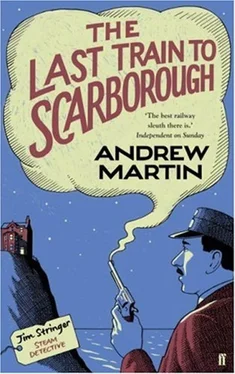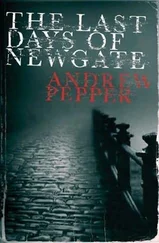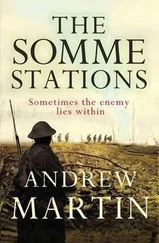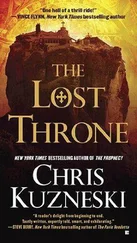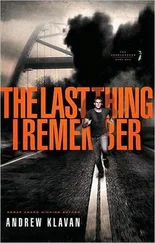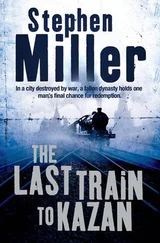It was not that the Captain was evil natured, but I believed him to be weak. This was why he had fled from his own father; it was why he'd heard me out, letting me tell the full tale as he tried to make up his mind what to do with me; it was why he'd showed me the body of Tommy Nugent, letting me see his dilemma in hopes of gaining my sympathy; in hopes I would understand better his reason for killing me. Then again his determination to keep his mentally defective brother out of the arms of the law perhaps went to his credit. The lad had suffered enough – Captain Rickerby might be thinking – at the hands of North Eastern Railway Company employees. Anyhow, he was judge and jury in my case, and I was quite sure it was a role he would have given anything to avoid taking on.
What would the weak man do? He would put a bullet in me and toss me in the hold ready for burning. But the accusing finger then began to point in my own direction. Who was I to charge anyone with weakness? I had lingered in the Paradise guest house half in hopes of fucking the landlady. My mind had been only partly on the case as a result; and why had I wanted to ride the lady? Because she was beautiful, yes. But also to get revenge on the wife, who had taken advantage of my own weakness to gain her own ends.
It came to this: I needed some fire in me; I needed to play a man's part; I needed a gun. I turned to Tommy and, in the light that came from the halo around the door, my eye wandered down from his broken head to his right shoulder, along his right arm and up to his right hand which rested on his kit bag. At first Tommy had had two bags, and where the other one had got to I had no notion. But I was sure that Captain Rickerby and the Mate had been through it with a fine toothed comb. They must have been through this one as well – only for some reason they'd left it in the locker. From one or both of the kit bags they'd removed Tommy's guns – that was the word the Mate had used: 'guns' in the plural. Accordingly there was no prospect of finding a gun in the bag. But it just so happened that when I opened it, I laid my hand directly upon the two- two pistol.
In fact, it was partly wrapped in a towel, but I hadn't had to fish for it. The Captain and the Mate must have been in a panic and no doubt a tearing hurry as they went through the bag. I put my hand into the lucky dip again and found nothing but clothes… only something somewhere rattled. I pulled out a cloth bag, and here were the two-two cartridges. The pistol seemed to me – as someone more familiar with revolvers – very primitive: hardly more than a length of pipe with handle, trigger and lever forming three short outgrowths. I pressed the lever; it was very accommodating and the gun broke. I stuffed a cartridge in the general direction of the barrel, and whether
I'd done it right or not I had no idea.
I found out less than a minute later when the door opened and the Captain, holding both his revolver and a coal black sack, appeared before me with the mighty mechanical hand of the Beckton gas works crane descending into the opened hold behind him.
I pulled the trigger; the gun flashed orange; the Captain fell back, and I was quite deafened. In that deafened state I took up the cloth bag, and re-loaded the gun. I stepped out of the locker and over the Captain, who still moved, and who might have been screaming. I saw the Mate, who held no gun and looked at me in a different way; alongside him stood – perhaps – the big man who had floored me. The claw of the crane was rising behind them, and Beckton gas works was far too close on the starboard side. I looked towards the foc's'le and saw two crewmen I did not know, had not seen before, but my surprise was nothing to theirs. I walked over to the port side with the shooter in my hand and there, running fast alongside, was a launch with a rough looking sailor at the wheel and an evident gent in a long, smart, official-looking great-coat standing very upright beside him.
Behind the two was a funnel hardly bigger than either of them, and the top of it was ringed with red paint. They were not quite coppers, I decided, but were somehow in authority. I looked down at them from the gunwale on the port side, and that did no good at all. So I raised my two-two pistol and fired, making not the least effect on the generality of the sailors and crane operators and wharf men. But the two fellows in the launch looked up.
Forty minutes south of York, I looked through the compartment window at the town of Retford: red bricks in the morning sunshine, and a smoking chimney that I believed to be the brickworks, and which I always thought of as a sort of factory for making Retford.
I'd run through the place on the main line many times, and had passed through it going the other way only a little under a month before, on my return from London and my imprisonment aboard the steam collier Lambent Lady, owned and operated by the firm of Hawthorn and Bruce of West Hartlepool, and contracted to the Gas, Light and Coke Company for the Beckton run. The Captain was a Rickerby: John, brother of Adam and Amanda; and the First Mate was Gus Klaason. The great-coated fellow I'd alerted by firing Tommy's pistol was Wharf Master of the Gas, Light and Coke Company who'd quickly alerted the Port of London Authority, an outfit that ran its own police force, and it was those boys who'd taken in Klaason and Rickerby (whose shoulder my bullet had broken). The two had been left unguarded for a minute before a remand hearing at Greenwich Magistrates Court; they'd done a push and were no doubt steaming fast to the far side of the world very soon after. An enquiry was to be held into the matter and a Chief Inspector Baxter of the Port of London Authority Police had written me a letter of apology. But I hardly cared about the escape. Yes, Captain Rickerby had meant to kill me at the last, but his intention had been to save his family from disaster, and he'd certainly put off the moment as long as he could. He had also saved that petrified lad – name of Edward Crozier – from drowning by going about to collect him after he'd tried to swim to the foreign ship that came alongside. (Crozier had by chance seen me brought aboard, and then been roped into the job of guarding me.)
The PLA coppers had been decent sorts, and they'd made me a present of the blue serge suit they'd given me after my rescue. I'd had my choice of any number of suits or sports coats and flannels, since they'd seemed to have an entire tailoring department on the strength. They also had a first class police doctor, who'd told me that carbon monoxide (as from coal gas) combines with haemoglobin in the blood to make carboxyhaemoglobin.
He wrote the name down in my pocket book as a kind of souvenir, saying that this was a very stable compound – and this stability was not a good thing. The poison prevented the lungs sending oxygen to the bodily cells that need it, and it might stop heart, lungs or brain. When it took over half your blood, then you were done for one way or another. I might have been saved, the doctor said, by not having jammed the paste-board into the window frame of my room on my second night – that small amount of ventilation might have been all- important. The doctor did not believe I had taken any permanent injury from my experience, but he did fret about my loss of memory. He asked me questions to test the membranes of my brain, and seemed quite satisfied with the results of this quiz, which ran to enquiries such as 'What is the name of the Prime Minister?' But I had been testing myself ever since. I would run through all the railway companies that ran into York station, or try to put a name and rank to every man in the police office, and do it fast. I would hit a sticking point every so often. For instance, the name of the painting that had been attacked could not have been the Rickerby Venus, could it? I asked myself the name of the oldest pub in York and could not recall whether it was the Three Cranes on St Sampson's Square, the Three Crowns on Coney Street or, for the matter of that, the Three Cups on Coney Street. I had certainly known the answer once, and I wondered whether the forgetting might not be down to the gas.
Читать дальше
